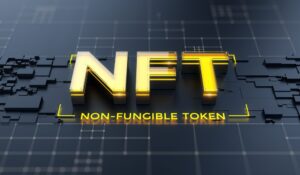As the world continues to embrace the metaverse concept, it is important to note that this virtual space is not immune to criminal activities. With more people joining the metaverse every day, criminals are finding new ways to exploit the platform and take advantage of unsuspecting users. Here are some of the crimes to watch out for in the metaverse.
Virtual Theft
Virtual theft is a growing problem in the metaverse. Hackers and cybercriminals are constantly devising new ways to steal virtual assets that have real-world value. These assets include virtual real estate, avatars, virtual currency, and other digital items.
One way that virtual theft occurs is through hacking. Cybercriminals can access a user’s account and transfer digital assets to their accounts. Another method is through phishing scams, where criminals create fake websites or avatars that look legitimate and trick users into revealing their login credentials.
Once the thieves have acquired the stolen virtual assets, they can sell them on the black market for real money. The value of these assets can be substantial, with some virtual real estate transactions reaching tens of thousands of dollars.
Cyberbullying
Cyberbullying is a significant problem in the metaverse, just as in the real world. Cyberbullies can use the anonymity provided by the platform to harass, intimidate, and threaten other users. This behavior can take many forms, such as spreading rumors, sharing personal information without permission, sending threatening messages, or posting humiliating content.
Cyberbullying can have severe psychological effects on the victim, leading to anxiety, depression, and other mental health issues. In extreme cases, cyberbullying can even lead to self-harm or suicide.
Phishing scams
Phishing scams have been one of the main stories of 2022 in the metaverse, with many NFTs and metaverse CEOs falling victim to these attacks. Phishing is a cybercrime where attackers use fake websites or avatars to trick users into revealing their personal information, such as login credentials, passwords, or credit card details.
Phishing attacks in the metaverse can be particularly dangerous because virtual assets such as NFTs and cryptocurrency have real-world value. As a result, hackers can use phishing scams to access a user’s account and steal their virtual assets.
Virtual Property Damage
Virtual property damage is a growing concern in the metaverse, where virtual assets such as virtual real estate, avatars, and other digital items can have significant real-world value. Virtual property damage can occur in several ways, including virtual vandalism, hacking, and glitches in the platform.
Virtual vandalism is a cybercrime where users intentionally damage or destroy virtual property, such as virtual buildings or art installations. This behavior can disrupt the platform’s ecosystem and cause financial harm to the owners of the virtual assets.
Glitches in the platform can also cause virtual property damage. For example, a glitch could cause a user’s virtual building to disappear, resulting in financial losses for the owner.
Conclusion
In conclusion, as the metaverse continues to grow and evolve, it is essential to prioritize the safety and security of its users. To ensure a positive and inclusive experience, addressing issues such as virtual theft, cyberbullying, phishing scams, and virtual property damage is crucial.
Users can enjoy the metaverse safely and responsibly by being aware of these risks and taking proactive measures to prevent them.
Disclaimer: NFTs and Cryptocurrencies are highly volatile, conduct your own research before making any investment decisions. Some of the posts on this website are guest posts or paid posts that are not written by our authors (namely Business Voices content) and the views expressed in these types of posts do not reflect the views of this website. Please read our full disclaimer here.




